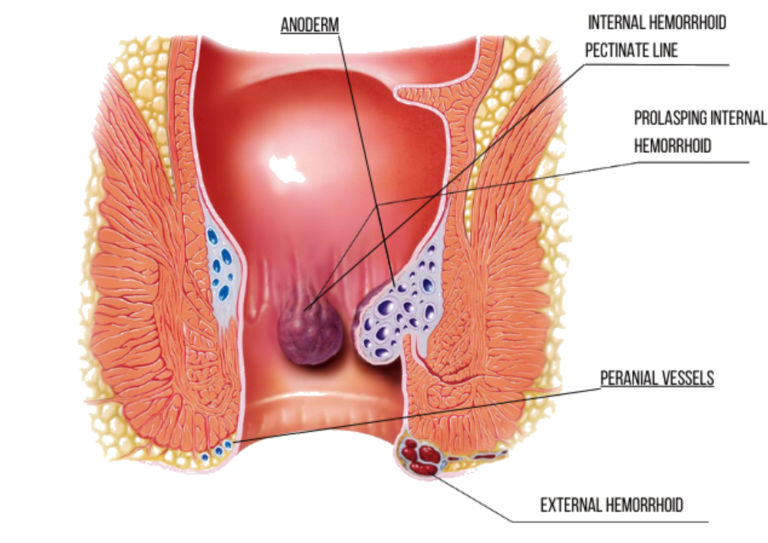Is Piles Dangerous? Understanding the Risks and When to Seek Help
Piles, also known as hemorrhoids, are swollen blood vessels in the anal or rectal area. While they are a common condition, many people wonder, “Is piles dangerous?” Generally, piles aren’t life-threatening, but they can significantly affect quality of life due to discomfort, pain, and other symptoms. In some cases, complications can arise if piles are left untreated. This blog will explore the potential risks, complications, and when to seek medical help for piles.

Understanding Piles: What Are They?
Piles can be classified into two main types:
- Internal Hemorrhoids: Located inside the rectum, usually painless but can cause bleeding.
- External Hemorrhoids: Found under the skin around the anus, often more painful and can become thrombosed (filled with blood clots).
Most cases of piles resolve with simple treatments, lifestyle changes, or over-the-counter remedies. However, certain circumstances can increase the risks, making it essential to understand the potential complications.
Symptoms and Discomfort Associated with Piles
Typical symptoms of piles include:
- Pain or discomfort during bowel movements
- Itching or irritation in the anal area
- Swelling or a lump near the anus
- Bleeding during bowel movements
- Mucus discharge after passing stool
While these symptoms are often manageable, they can lead to complications if untreated, especially in severe cases of piles.
When Can Piles Become Dangerous?
Although piles aren’t usually dangerous, they can become serious in the following scenarios:
Chronic Bleeding
Persistent bleeding from piles can lead to iron-deficiency anemia, causing symptoms like fatigue, weakness, and dizziness. Severe cases may even require a blood transfusion.Thrombosed Hemorrhoids
External hemorrhoids can develop blood clots, causing severe pain and swelling. Thrombosed piles may require surgical removal if they don’t resolve with conservative treatments.Infection and Abscess Formation
Piles can sometimes lead to infections, especially if there is persistent irritation and skin breakdown. This can result in an abscess, which may require drainage and antibiotics.Strangulated Hemorrhoids
Internal hemorrhoids can prolapse, or extend outside the anal opening, which may become “strangulated” if the blood supply is cut off. This condition is extremely painful and can lead to tissue death, requiring urgent medical attention.Impact on Quality of Life
Severe, untreated piles can cause ongoing discomfort and interfere with daily activities, including sitting, working, or exercising. The psychological impact of persistent symptoms can also lead to anxiety and stress.
How to Prevent Piles Complications
While piles are not typically dangerous, taking steps to prevent complications is essential. Here’s how you can reduce the risk:
- Increase Fiber Intake: A high-fiber diet with fruits, vegetables, and whole grains can prevent constipation and reduce strain during bowel movements.
- Stay Hydrated: Drinking plenty of water helps soften stools, preventing constipation and easing bowel movements.
- Practice Good Toilet Habits: Avoid straining, and don’t delay going to the bathroom when you feel the urge to pass stool.
- Avoid Prolonged Sitting: Sitting for long periods, especially on the toilet, increases pressure on the anal veins.
- Exercise Regularly: Physical activity promotes healthy bowel movements and reduces pressure on rectal veins.
Treatment Options for Piles
If piles persist or become severe, various treatment options are available:
Over-the-Counter Remedies
Creams, ointments, and suppositories can relieve symptoms like itching, swelling, and discomfort.Minimally Invasive Procedures
- Rubber Band Ligation: A band is placed around the base of the hemorrhoid to cut off blood flow, causing it to shrink and fall off.
- Sclerotherapy: A solution is injected into the hemorrhoid, leading to shrinkage.
- Infrared Coagulation: Infrared light is used to cut off blood supply to the hemorrhoid.
Surgical Options
In cases where conservative treatments fail, surgery may be recommended. Procedures include:- Hemorrhoidectomy: Surgical removal of hemorrhoids.
- Stapled Hemorrhoidopexy: Stapling to reposition the hemorrhoid tissue and reduce blood flow.
When to Seek Medical Help
It’s important to consult a doctor if you experience any of the following:
- Persistent bleeding during bowel movements
- Severe pain that doesn’t improve with over-the-counter treatments
- Signs of infection, such as fever or excessive swelling
- Symptoms that worsen or interfere with daily life
ProctoCare Center Indore is here to help you manage and treat piles effectively. With expert proctologists and advanced treatment options, we offer personalized care for every patient. Don’t let piles affect your life—reach out to ProctoCare for effective, compassionate treatment.
Conclusion
While piles are generally not dangerous, untreated cases can lead to complications affecting physical and mental well-being. Understanding the risks and taking proactive steps to manage symptoms is key to preventing serious issues. If you’re experiencing symptoms of piles, consult with the experts at ProctoCare Center Indore to find the best treatment for lasting relief.
Is Piles Dangerous? Understanding the Risks and When to Seek Help
Piles, or hemorrhoids, aren’t usually life-threatening but can cause discomfort and, in some cases, lead to complications if untreated. Here’s a quick look at the risks and when to seek help.

What Are Piles?
Piles are swollen veins in the anal area. They’re common and can be internal or external, with symptoms like pain, itching, bleeding, or swelling.
When Can Piles Become Dangerous?
- Chronic Bleeding: Ongoing bleeding can lead to anemia.
- Thrombosed Hemorrhoids: Blood clots in external piles can cause severe pain.
- Infection: Untreated piles can become infected, causing more pain and swelling.
- Strangulated Hemorrhoids: Blood supply to prolapsed hemorrhoids can get cut off, causing intense pain.
Tips to Prevent Complications
- Eat a high-fiber diet to avoid constipation.
- Stay hydrated to soften stools.
- Avoid straining and sitting too long in the toilet.
- Exercise regularly to promote healthy digestion.
Treatment Options for Piles
For mild cases, try:
- Over-the-counter creams or ointments
- Warm sitz baths for relief
For more severe cases, ProctoCare Center Indore offers advanced treatments like rubber band ligation, sclerotherapy, or surgical options if needed. Don’t wait if symptoms persist or worsen—reach out to ProctoCare for expert care.
